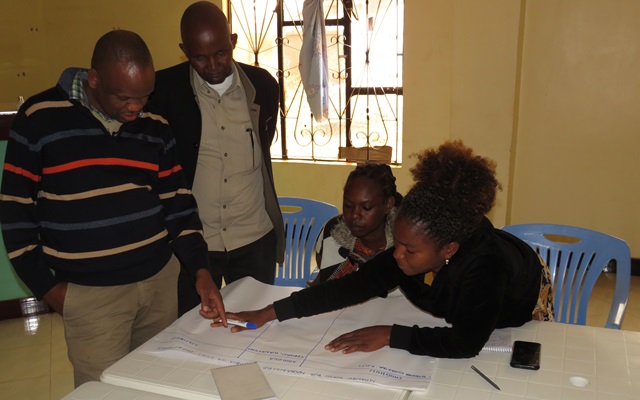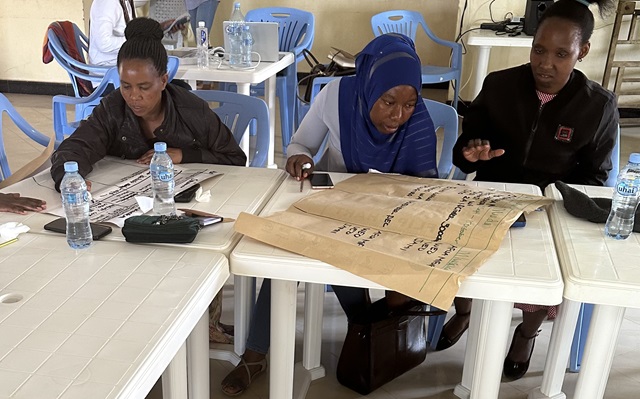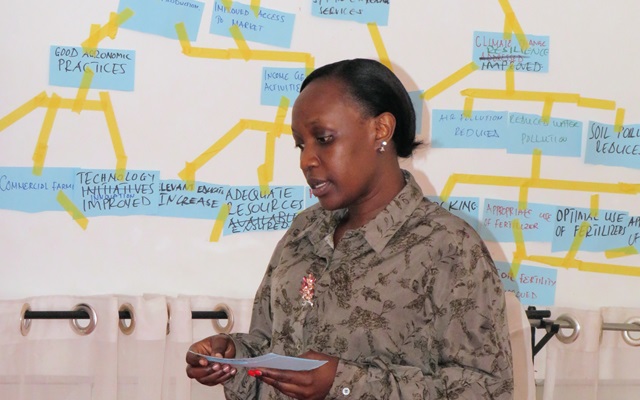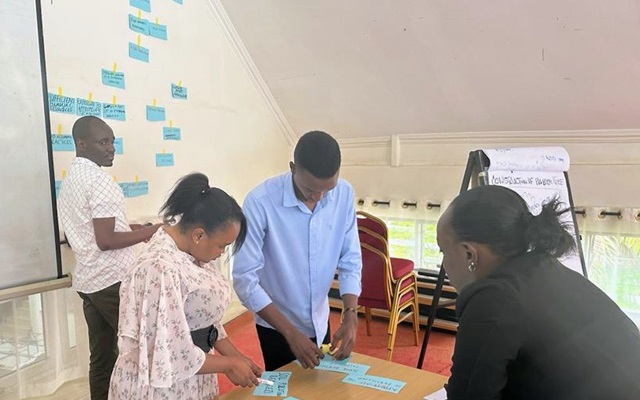Supporting indigenous communities to build resilience against climate change
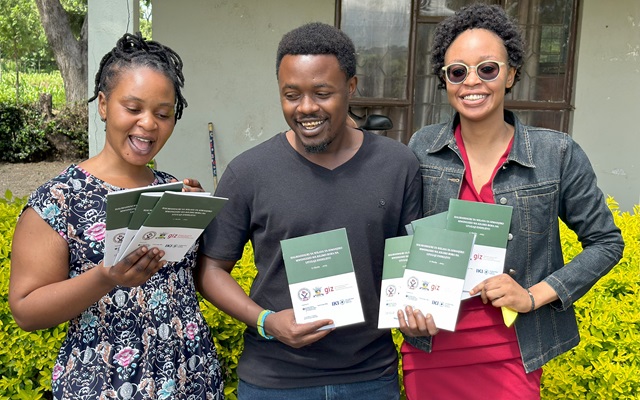
This IKI Small Grants project targets subsistence farmers of the indigenous group of Maasai that are negatively affected by climate change in the Simanjiro region. Extreme changes in rainfall patterns and long periods of drought decreased agricultural productivity and livestock rearing. The lack of pasture has led pastoralists to enter their cattle into a wildlife conservation area. The objectives of the project are to increase the awareness and adoption rate of Climate-Smart Agricultural (CSA) practices among 3,000 indigenous farmers and pastoralists to support the communities’ agricultural production. The project foresees training and knowledge exchange formats to build up the capacity of farmers and to widely disseminate practices. It closely cooperates with local governments and indigenous leaders.
INITIAL SITUATION
Simanjiro District Council has been facing a decline in rainfall and a change in rainfall pattern in recent years. In Simanjiro, most inhabitants are Maasai and dependent on agriculture and livestock keeping, hence becoming vulnerable to climate change and unemployment. The extreme changes in climate have heightened conflicts between pastoralists groups, farmers, and wildlife conservation authorities. The conflicts have also extended to those between the indigenous and the Tanzania Forest Service Agency due to the increased cutting down of trees for agricultural and fuel purposes.
TARGET GROUP
The project targets women, youth and men, local government authorities, and private stakeholders. It directly reaches 3,000 vulnerable farmers and pastoralists. 50 percent of the target group are women, youth, and disadvantaged groups. In total, 450 school children from school water, sanitation, and hygiene clubs are reached. 200 champion farmers further reach community members and induct them on the best practices related to cultivation and livestock keeping, enhancing their adaptation capacities.
APPROACH AND ACTIVITIES
The IKI Small Grants project gears towards building a resilient community in Simanjiro District through the practice of climate smart agriculture. Its main goal is to reduce the vulnerability of indigenous communities.
The activities include an analysis of the agricultural situation, the selection of 200 champion farmers and pastoralists, as well as 15 schools in Simanjiro for dissemination of CSA practices. It further establishes 15 tree nurseries in collaboration with the Tanzania Forest Service. These nurseries provide 200,000 indigenous tree species and seeds, which can be used by the community.
Thus, the project aims to influence the community’s behaviours by introducing CSA practices and tree planting campaigns. It trains agricultural extension and livestock officers on CSA practices as a form of training of trainers. The officers are enabled to support farmers and pastoralists in their localities beyond the project’s lifetime. The project also creates a simplified training manual for CSA and disseminates it to various stakeholders.
It further provides training for school children on tree planting and tree management for the community. 15 tree nurseries are established allowing for 200,000 seedlings to be distributed in a joint effort with Tanzania Forest Service Agency. The schools are equipped with rainwater harvesting mechanisms.
Furthermore, the project facilitates workshops and seminars between farmers, pastoralists, private stakeholders, and the government and uses local radio programs to create supportive institutions for adoption of CSA in the district.
LATEST PROJECT HIGHLIGHTS AND IMPACTS
- 15 schools for tree nurseries identified
- 24 agricultural and livestock extension officers trained as ToT in CSA approaches
- 200 champion farmers and pastoralists identified including 100 women
- Agricultural situation at Simanjiro DC analysed
- simplified tailor-made manual for CSA practices developed and to 385 people distributed
CAPACITY DEVELOPMENT
IKI Small Grants supports E-Mac in their organisational capacity development through:
- Training on project proposal writing
- Equip M&E team with M&E planning process (ICT packages)
- Training on advocacy, presentation, and negotiation techniques.
ABOUT THE ORGANISATION
E-MAC Tanzania was initially developed in early 2010 as a Community Based Organization (CBO) by development practitioners working in different international NGOs and research institutions to support community initiatives. In 2012, E-MAC Tanzania was recognized at district level and later in 2013, it was fully registered to operate at the national level. Its goal is to realize sustainable development whereby all marginalized communities have equal rights to share available resources, through access to health and economic opportunities.

